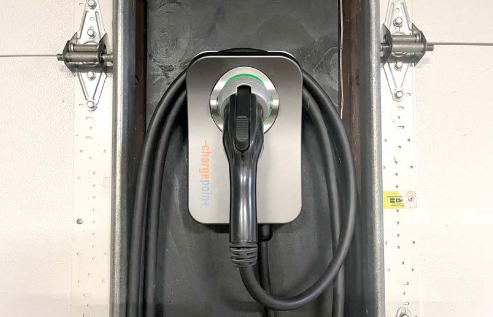
By Stephen Appezzato
If you’re in the market for an electric vehicle (EV) soon, it may be smart to hold off a few months – to get the most bang for your buck.
The New Jersey Board of Public Utilities (NJBPU) recently announced this year’s funding of the Charge Up New Jersey incentive program (CUNJ), where new EV buyers can receive a rebate of up to $4,000 for their vehicle, has run out of money. Officials speculate another wave of funding will come for EV buyers in 2024.
Federal tax credits for EV purchases are still available.
According to the program site, CUNJ rebated car buyers approximately $30 million since July 12, the day year four of the program was reinstated.
NJBPU President Christine Guhl-Sadovy said this year’s program was “successful in supporting New Jersey residents who want to make the switch to EVs,” covering 12,000 EV transactions.”
It is “evidence that more New Jerseyans want to drive electric.”
“Through this program, they have the opportunity to do that.”
Currently, there are more than 123,000 EVs on New Jersey roadways. EVs now make up 12% of all new car sales in the state.
New car electrification is a cornerstone of Gov. Phil Murphy’s plan to transition the state to 100% clean energy by 2035. This plan includes a rule stating all new car sales beginning in 2035 must be zero emission.
CUNJ was launched in 2020 to kickstart this plan, incentivizing new EV buyers with a $4,000 rebate at the time of vehicle purchase. In total, $120 million has been distributed to approximately 35,000 car buyers.
To obtain the rebate, car buyers apply for the incentive at the point of purchase with assistance from the car dealership, with the rebate amount coming off the purchase price of the car. The dealership then receives the money from the state program. However, not every EV is eligible for the rebate; the program site outlines a list of only 23 cars that currently meet the criteria.
According to Thomas DeFelice III, operator and vice president of Circle BMW in Eatontown, purchasers of BMWs have not used the rebate much as most of the cars the company offers are “too expensive to qualify” for the rebate.
DeFelice said Circle did use it often at its Hyundai store in Shrewsbury.
He described CUNJ as “a well-intentioned program ultimately handicapped by poor funding and a lack of transparency.”
“It’s a useful program but it was significantly underfunded and that causes frustration for dealers and consumers. Adding to the frustration is the fact that the state doesn’t provide adequate transparency into the status of incentives, and dealers often couldn’t tell customers if their purchase would be eligible as funds start to run out,” he said.
“Further, dealers are waiting too long to get paid the reimbursement for the rebates.”
Those eyeing an EV who don’t want to wait until summer when the rebate program will receive another round of funding can still take advantage of a different cost-saving program. As of press time, approximately $1.7 million in funding for the EV charger rebate program remains up for grabs.
Purchasers of EV home chargers can receive a $250 rebate, as well as a federal tax credit. The CUNJ website lists home chargers that are eligible for the incentive. Chargers must be a Level 2 and installed by a professional electrician.
Typically, Level 2 chargers add 15-35 miles of range per charging hour compared to Level 1 charging – sometimes called trickle charging – from a regular 120V household outlet, according to the program.
To obtain this benefit, charger owners must submit proof of purchase of their Level 2 charger, a photo of the charger serial number, a scanned copy of their driver’s license and valid EV registration.
With the success of this year’s round of CUNJ funding, Murphy will adopt a new zero-emission EV standard in December. Vehicle manufacturers will have to make zero-emission vehicles a greater percentage of their new “light-duty” vehicle sales beginning with model year 2027.
According to the Governor’s Office, the rule “does not impose obligations on consumers or car dealers,” but instead manufacturers.
Officials say the legislation does not ban new gasoline car sales, nor force consumers to purchase EVs. Instead, it provides certainty that car manufacturers will make long-term investments “that will be crucial to large-scale deployment of light-duty ZEVs.”
The article originally appeared in the December 7 – December 13, 2023 print edition of The Two River Times.














